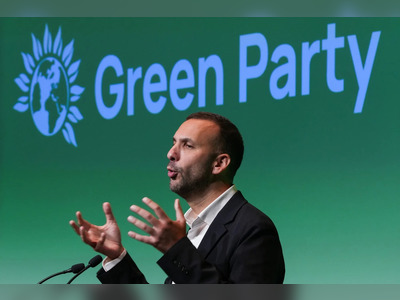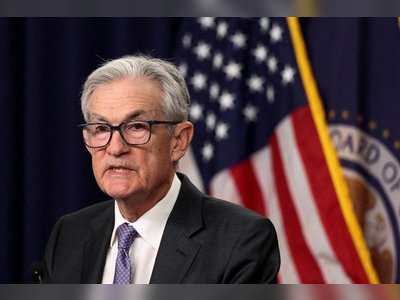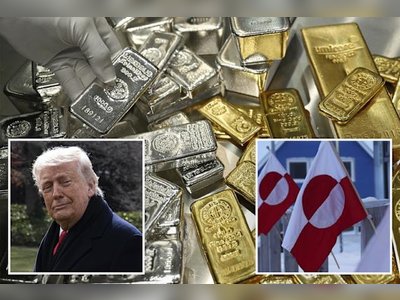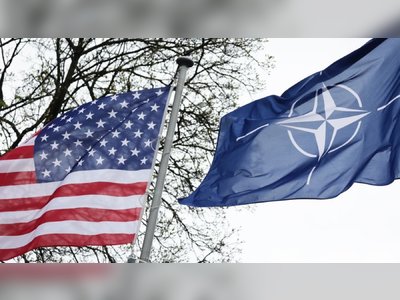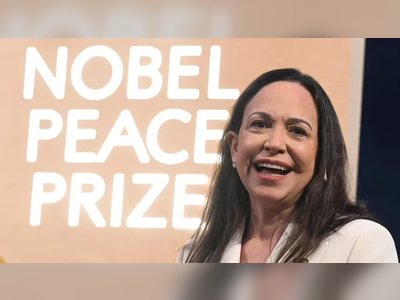European Cosmetics Sector Requests Exemption from Tariffs Linked to Trade War
L'Oréal spearheads an industry effort to remove beauty products from the EU's retaliation list amid rising trade tensions with the US.
L'Oréal, the French cosmetics powerhouse with a market capitalization of around one hundred eighty-eight billion euros, has officially asked the European Union to exclude the beauty industry from its proposed retaliatory tariffs against the United States.
This request arises amid increasing trade tensions concerning luxury and consumer goods.
In March, the CEO of L'Oréal indicated that the company is ready to adjust if tariffs are enacted, highlighting their pricing power and favorable currency conditions due to a robust US dollar.
He remarked that while tariffs can be managed, they should not be incorporated into a reciprocal trade agenda.
Shortly after his remarks, L'Oréal formed a coalition of fifteen beauty companies to formally urge the European Commission to exclude the beauty sector from its draft list of targeted American imports.
The EU had created a ninety-nine-page document detailing potential tariff targets, originally scheduled to be implemented on April 1. However, the European Commission postponed the rollout until April 13 to facilitate further diplomatic discussions with the United States.
The French spirits sector, which faces the threat of US tariffs reaching up to two hundred percent, also supported the delay.
France’s cosmetics industry association has opposed new tariffs by referencing trade statistics that reveal France imports about five hundred million euros worth of American cosmetics each year, while exporting approximately two and a half billion euros in personal care items to the US. The broader European cosmetics industry sustains around two million jobs throughout the continent.
Although L'Oréal produces roughly two-thirds of its US-sold products within the country, company sources suggest that divisions focused on fragrances and scented goods are particularly susceptible to tariffs.
A slowdown in these areas could affect the company’s financial performance, which is already under strain due to diminishing consumer confidence in China.
China remains a vital market for the global cosmetics sector.
With a growing middle class, it is now the second-largest market for beauty products in the world, following the United States.
L'Oréal has announced a decline in sales in China over several quarters: a drop of six point five percent in Q3 2024, three point six percent in Q4, and a total decrease of about four percent for the entire year.
China makes up around seventeen percent of the company’s total revenue.
In contrast, sales in the US increased by only one point four percent in 2024.
Over the last year, L'Oréal's stock price has fallen by about nineteen percent after experiencing several years of growth during the COVID-19 period, which was partly fueled by heightened demand for premium cosmetics.
Despite the recent decline, the stock has increased by forty-eight percent over the past five years.
In 2024, L'Oréal reported annual revenues of forty-three point four eight billion euros, marking a five point six percent increase from the previous year.
Net profit reached six point four one billion euros.
In comparison, Estée Lauder, L'Oréal's American competitor, is currently valued at around twenty-four billion US dollars.
The New York-listed company has seen its share price plummet by approximately fifty-seven percent over the last five years, including a fifty-two percent drop in just the past year.
L'Oréal’s performance has positioned it as a significant investment for various high-profile funds.
One prominent supporter is Terry Smith, a well-regarded investor based in the UK whose fund manages thirty-six billion pounds in assets.
The cosmetics industry's plea for exemption, similar to that of the spirits sector, has faced public backlash.
Critics contend that the exclusion of luxury products from the EU’s trade response represents a misguided perspective, particularly considering the ongoing economic tensions initiated by the previous US administration.
This request arises amid increasing trade tensions concerning luxury and consumer goods.
In March, the CEO of L'Oréal indicated that the company is ready to adjust if tariffs are enacted, highlighting their pricing power and favorable currency conditions due to a robust US dollar.
He remarked that while tariffs can be managed, they should not be incorporated into a reciprocal trade agenda.
Shortly after his remarks, L'Oréal formed a coalition of fifteen beauty companies to formally urge the European Commission to exclude the beauty sector from its draft list of targeted American imports.
The EU had created a ninety-nine-page document detailing potential tariff targets, originally scheduled to be implemented on April 1. However, the European Commission postponed the rollout until April 13 to facilitate further diplomatic discussions with the United States.
The French spirits sector, which faces the threat of US tariffs reaching up to two hundred percent, also supported the delay.
France’s cosmetics industry association has opposed new tariffs by referencing trade statistics that reveal France imports about five hundred million euros worth of American cosmetics each year, while exporting approximately two and a half billion euros in personal care items to the US. The broader European cosmetics industry sustains around two million jobs throughout the continent.
Although L'Oréal produces roughly two-thirds of its US-sold products within the country, company sources suggest that divisions focused on fragrances and scented goods are particularly susceptible to tariffs.
A slowdown in these areas could affect the company’s financial performance, which is already under strain due to diminishing consumer confidence in China.
China remains a vital market for the global cosmetics sector.
With a growing middle class, it is now the second-largest market for beauty products in the world, following the United States.
L'Oréal has announced a decline in sales in China over several quarters: a drop of six point five percent in Q3 2024, three point six percent in Q4, and a total decrease of about four percent for the entire year.
China makes up around seventeen percent of the company’s total revenue.
In contrast, sales in the US increased by only one point four percent in 2024.
Over the last year, L'Oréal's stock price has fallen by about nineteen percent after experiencing several years of growth during the COVID-19 period, which was partly fueled by heightened demand for premium cosmetics.
Despite the recent decline, the stock has increased by forty-eight percent over the past five years.
In 2024, L'Oréal reported annual revenues of forty-three point four eight billion euros, marking a five point six percent increase from the previous year.
Net profit reached six point four one billion euros.
In comparison, Estée Lauder, L'Oréal's American competitor, is currently valued at around twenty-four billion US dollars.
The New York-listed company has seen its share price plummet by approximately fifty-seven percent over the last five years, including a fifty-two percent drop in just the past year.
L'Oréal’s performance has positioned it as a significant investment for various high-profile funds.
One prominent supporter is Terry Smith, a well-regarded investor based in the UK whose fund manages thirty-six billion pounds in assets.
The cosmetics industry's plea for exemption, similar to that of the spirits sector, has faced public backlash.
Critics contend that the exclusion of luxury products from the EU’s trade response represents a misguided perspective, particularly considering the ongoing economic tensions initiated by the previous US administration.







